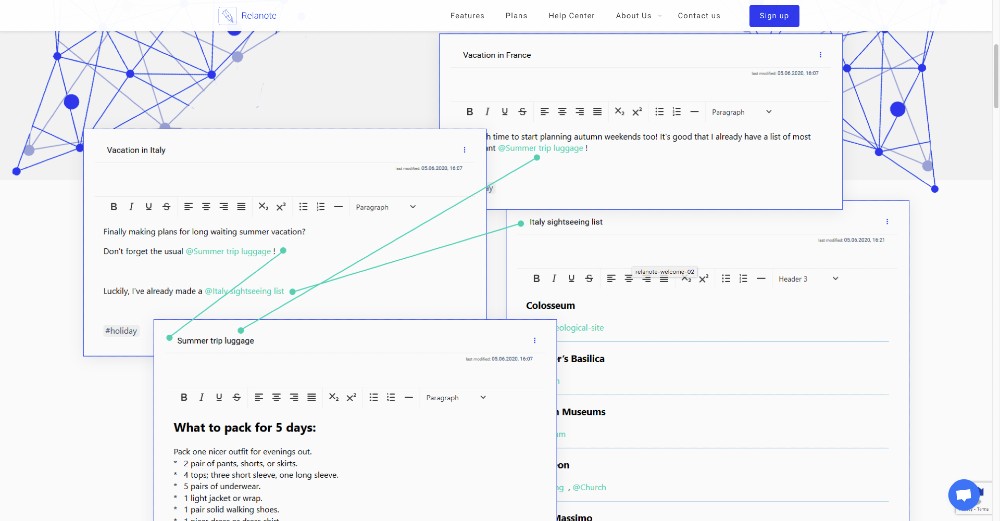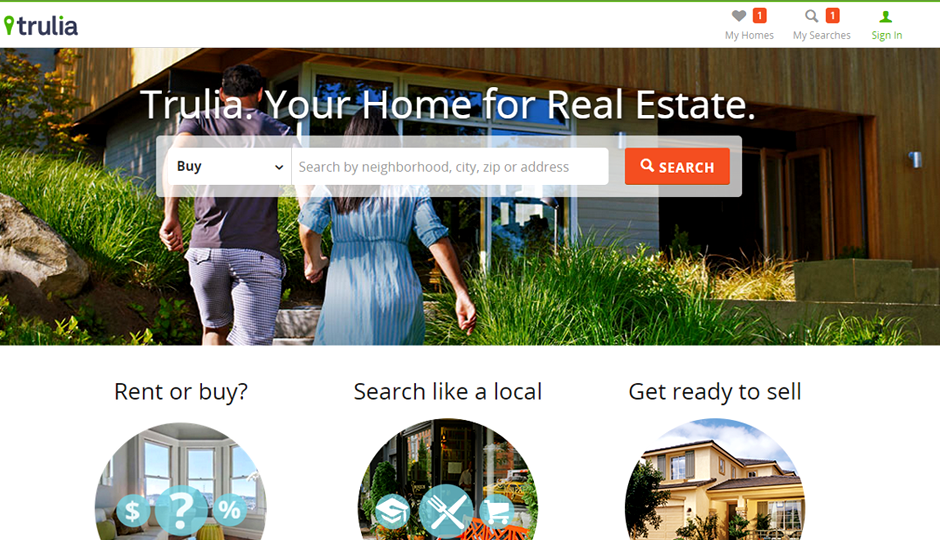The following is the transcript of the joint investor call held by Zillow, Inc. and Trulia, Inc. on July 28, 2014.
Corporate participants include:
Raymond Jones – Head-Investor Relations, Zillow, Inc.
Spencer M. Rascoff – Chief Executive Officer & Director, Zillow, Inc.
Pete Flint – Chairman & Chief Executive Officer, Trulia, Inc.
Other participants include:
Mark S. Mahaney – Analyst, RBC Capital Markets LLC
Ron Victor Josey – Analyst, JMP Securities LLC
Chris Merwin – Analyst, Barclays Capital, Inc.
Heath P. Terry – Analyst, Goldman Sachs & Co.
Neil A. Doshi – Analyst, CRT Capital Group LLC
Chad W. Bartley – Analyst, Pacific Crest Securities LLC
Jason S. Helfstein – Analyst, Oppenheimer & Co., Inc. (Broker)
Lloyd Walmsley – Analyst, Deutsche Bank Securities, Inc.
James M. Cakmak – Analyst, Telsey Advisory Group LLC
Operator: Good day, ladies and gentlemen, and welcome to your conference call to discuss Zillow’s plans to acquire Trulia. At this time all participants are in a listen-only mode. Later, we’ll conduct a question-and-answer session and instructions will be given at that time. [Operator Instructions] And as a reminder, this conference call maybe recorded.
I would now like to turn the conference over to Mr. R.J. Jones, Investor Relations Officer for Zillow. Sir, you may begin.
Raymond Jones, Head-Investor Relations: Good morning, everyone, and welcome to our discussion of the announcement of Zillow’s plans to acquire Trulia. Joining us today on the call are Spencer Rascoff, the Chief Executive Officer, of Zillow; and Pete Flint, the Chief Executive Officer of Trulia. We will start today with prepared remarks from both CEOs, then host a brief Q&A session. We have allotted 30 minutes for this call.
Before we get started, as a reminder, during the course of this call, we will make forward-looking statements regarding future events, including our expectations, regarding Zillow’s proposed acquisition of Trulia. We caution you to consider the important risk factors that could cause actual results to differ materially from those in the forward-looking statements made in the press release and on this conference call. These factors include, but are not limited to the satisfaction of closing conditions, including shareholder and regulatory approval of the proposed transaction. Additional risk factors are described in our press release and under the caption Risk Factors in Zillow’s Annual Report on Form 10-K for the year ended December 31, 2013, Trulia’s quarterly report on Form 10-Q for the quarterly period ended March 31, 2014, and in Zillow’s and Trulia’s other filings with the SEC.
In addition, please note that the date of this conference call is July 28, 2014, and any forward-looking statements that we make today are based on assumptions as of this date. We undertake no obligation to update these statements as a result of new information or future events except as required by law.
I will now turn the call over to Spencer.
Spencer M. Rascoff, Chief Executive Officer & Director: Good morning. As you’ve seen from our press release, today is an exciting day. I’m very pleased to announce that Zillow has entered into an agreement to acquire Trulia. I’m very excited about the tremendous opportunity to combine resources in a way that creates even more innovation and better products for consumers and real estate professionals alike.
Before we get into the structure of the deal, I’d like to touch on some of these opportunities and why I’m so excited about today’s announcement. First off, our plan is to continue to operate both consumer brands, Zillow and Trulia are highly complementary and respected brands with consumer-first philosophies and employee cultures. This shared devotion has allowed both companies to create products that empower consumers through greater information transparency. And we’ve collectively driven incredible advances in home shopping on mobile and web.
Despite Zillow and Trulia’s rapid growth over the past several years, the two firms’ offerings remain differentiated and the consumer overlap in both brands is relatively low. According to comScore, in June of this year, about half of Trulia’s monthly desktop users did not visit Zillow, and about two-thirds of Zillow’s do not visit Trulia. Just as in other categories, such as online dating in the case of IAC, travel in the case of TripAdvisor, the Priceline Group and Expedia, and even weather, where The Weather Company operates weather.com, The Weather Channel, Weather Underground and in telecasts, we believe that having multiple brands inside the same corporate parent allows us to better serve a larger audience, while taking advantage of certain shared backend services.
In fact, Zillow Inc. has already operated this way since our acquisition of our consumer rental brand, HotPads in 2012 and the acquisition of our New York Property StreetEasy in 2013.
Both Zillow and Trulia excel at connecting consumers with professionals through high ROI, seamless advertising on mobile and web. The more real estate client interactions we can drive to real estate professionals, the better the experience for both consumers and our advertisers.
As media companies we view this transaction as a unique opportunity to accelerate our shared growth into a real estate advertising marketplace that is still incredibly fragmented. While nearly all home shopping now starts online, the vast majority of real estate advertising has yet to migrate to the web and mobile. The addressable market for residential real estate advertising is massive at approximately $12 billion annually, yet on a combined basis Trulia and Zillow have less than 4% share of this market. Said another way, over 96% of the ad dollars available in our category are spent elsewhere and mostly offline.
Most real estate agent advertising still goes to offline channels such as newspapers, billboards and direct mail as well as newer players such as display advertising networks, online video, search engine marketing and social media platforms. While still early, we expect these ad dollars will eventually accrue to the most effective channels over the long term. And we expect to be able to offer advertisers a better value proposition as one company.
We anticipate a number of specific benefits as a result of this transaction. First, we can innovate faster. By combining resources and building upon a common foundation for data and development, we expect to accelerate innovation and create new mobile and web products faster than we would separately. By bringing together our unique, yet complementary cultures of innovation, the Zillow and Trulia creative engine can fire on combined cylinders, gain speed and create more products than ever before.
This speed of innovation will be especially evident on mobile. We are experiencing the early stages of a tectonic shift in consumer engagement from desktop to mobile devices in our category. Due to GPS capabilities in smart devices, mobile is rapidly becoming the medium of choice for online home shopping and the majority of homes viewed on Zillow today are viewed on a mobile device. We both believe that there is a looming wave of mobile technology proliferation and broadband network expansion that will enable even greater mobile adoption by consumers. As touch screen devices’ increasingly dynamic mobile content and cloud based development converge, we believe that over the next 5 years to 10 years, consumer mobile usage and all thing home can scale to many times over what it is today. Through a more efficient allocation of investment in human capital, we will be at the forefront of the next wave of advances in mobile home shopping.
The second key benefit is our ability to provide greater access to free real-estate market data. If you shopped for a home 10 years ago your experience would have been dramatically different than it is today with the amount of real estate data and information at your fingertips. Zillow and Trulia were at the forefront of this revolution to set real estate information free. As one company, we expect to take advantage of each other’s knowledge and expertise to continue that mission to help people make more informed decisions.
Third, we can offer our partners broader distribution and deliver greater value and ROI for advertisers. Home sellers and their agents as well as brokerages and participating MLSs will benefit from broader listings distribution across even more platforms to reach an even larger audience. Due to the limit overlap in our unique users, advertisers will get the benefit of a larger network to increase their reach and exposure. We also anticipate shared services and marketing platforms for advertisers that will enhance agent productivity and marketing and deliver greater return on their investment.
And finally we expect to realize sizeable cost synergies. After we combine, we expect to achieve at least $100 million in annualized cost avoidances by the end of 2016, by gaining efficiencies through shared services such as foregone sales and marketing costs.
Now, let me outline the financial terms and structure. As noted in the press release, the value of this deal is $3.5 billion in what will be a stock-for-stock transaction. Upon shareholder and regulatory approval, all the outstanding shares of Trulia will be exchanged for shares of the combined company. This means that each Trulia shareholder will receive 0.444 shares of common stock – shares of stock in the combined company. Upon close, Trulia’s shareholders will hold approximately 33% of the combined company, while Zillow shareholders will hold roughly 67%. This value represents a 25% premium to Trulia’s closing price on July 25, 2014.
Upon closing, Pete Flint will continue to be CEO of Trulia, reporting to me. This transaction has been approved by both Boards of Directors and is subject to customary closing conditions including satisfaction of regulatory approvals and approval by shareholders of both Zillow and Trulia.
Until we obtain these approvals, we’ll continue to operate as independent companies, running separate businesses. This includes reporting results for the second quarter and subsequent quarters. We expect these approvals will take several months. Upon closing, we’ll be able to share more about the operational and organizational structure moving forward.
Right now, we’re excited about the prospects of the deal and the opportunities ahead. I want to acknowledge Pete Flint, Sean Aggarwal and Paul Levine and the entire team at Trulia for building such an impressive brand and business. We are excited to work together to accelerate advancement of the real estate category through even faster innovation to empower more consumers and help agents and our industry partners to be more successful.
Now, I’m pleased to introduce Pete Flint, the CEO of Trulia.
Pete Flint, Chairman & Chief Executive Officer, Trulia, Inc.: Thank you, Spencer. This is an extremely exciting day for both Trulia and Zillow. Since Trulia’s founding in 2005, we have been focused on creating an online destination that allows consumers who are searching for home, while also providing real estate agents with a highly-effective advertising platform. Over these past 10 years, we have made incredible progress in serving ad transaction ready consumers while building innovative business and brands of which we are extremely proud.
Trulia and Zillow, each have a long history of creating fantastic products on mobile and web for homebuyers and sellers and for their real estate agents. We believe that molding of our complementary brands’ unique data and [ph] end (9:52) user experiences creates tremendous potential for our combined company to innovate faster and grow further in what’s a huge and a massive market opportunity.
Over the years Trulia has nurtured an amazing culture of innovation. I would like to take this opportunity to thank all our employees for their hard work and dedication. We are all extremely excited by the
prospect of combining our efforts with the team of Zillow to provide even more value to consumers and our industry partners going forward. Sean and I will report Trulia’s Q2 results this Thursday and we’ll host a quarterly results conference call at 2 P.M.
With that, I will turn the call back to Spencer, to take your questions.
Questions and answers
Operator: Thank you. [Operator Instructions] And, our first question comes from Mark Mahaney from RBC. Your line is open. Please go ahead, sir.
(A – Spencer Rascoff – Zillow, Inc.): Sure. I’ll jump on that one, Mark. So the cost avoidances, the $100 million in 2016 come from a combination of things including forgone advertising expense and heads that we won’t need to hire as a combined company, both of us, both of our companies have literally hundreds of open heads, because we’re running so fast. And I think as a combined company, we’ll be able to avoid a lot of new hires.
And on the advertising point just to backup for a second, we’re going to continue to invest significantly in both of these brands, but I still think there will be cost avoidances on the advertising side available to us as a single company. In terms of market leader I’ll say, our companies have a very similar philosophy, which is real estate agents who use technology are better agents and better agents make for better advertisers.
And we’ve actually gone about, we both have that thesis and in the case of Zillow we acquired a CRM, Buyfolio, and then we use diverse solutions and another acquisitions to help take it national. In the case of Trulia they acquired Market Leader and then in the case of Zillow we also connected to many other CRMs to give agents choice.
So, we have slightly different implementations of what I consider to be the same fundamental strategy which is that agents using technology are better and therefore make for better advertisers. So that philosophy is not going to change. It’s going to be months before the transaction closes and we’re going to announced operational and organizational specifics once the acquisition closes.
So I can’t comment further than that other than to stay, we both believe that technology enabled agents are the wave of the future.
(Q – Mark Mahaney – RBC Capital Markets LLC): Thanks, Spencer.
Operator: Thank you. Our next question comes from Ron Josey from JMP Securities.
(Q – Ron Josey – JMP Securities LLC): Thanks, thanks for taking the question, two please. So first and foremost, why now? Both the companies continue to grow at very strong rates, taking share and $3.5 billion seems to be a significant premium and I’m wondering just, why now?
And then the next question is just quickly Spencer and Pete, are there any markets were Trulia is stronger than Zillow and vice versa and particularly how that might impact pricing? Thank you.
(A – Spencer Rascoff – Zillow, Inc.): Sure. So in terms of why now? I guess I’d say why not now? Both companies come at this from a position of strength, we both have a lot of momentum behind our businesses in terms of revenue growth and traffic growth and audience growth.
And we, like you, agree that this combination makes a lot of sense and we are very fortunate that the stars aligned in terms of both parties finding common ground on the transaction. The headline price, just to be clear, it’s an all-stock deal at a 0.444 exchange ratio. The way I think about it is, the pro forma ownership of two-thirds, one-third and sort of the question – to your question, Ron, about the premium – the question that we as a Zillow board asked ourselves is, would we rather own a 100% of Zillow or two-thirds of the combined company? And the unanimous decision was we’d rather own two-thirds of the combined company.
So I think, you can kind of – if you start looking at the total price and looking at deal multiples, you can start sort of going crazy, trying to think through the transaction. If you think about it as an exchange ratio, stock deal, and pro forma ownership, I think that’s how we approached it and I think we found common ground there. In terms of markets that the two brands are stronger than – that one brand might be stronger in than another, we can’t share anything specific on that right now. I do think, I will say that how these brands will complement each other in the marketplace is something that I can comment on.
So, Zillow focuses on all homes and we have information not just on those on the market, but also those off market. Trulia has that information as well, but their brand and their product is more focused on, directly on home shopping and rental shopping. So I think as these brands evolve in the marketplace that’s probably the way they’ll each evolve in the consumers’ minds’ eye where one brand is kind of 100% transactional or solely focused on transaction, and the other one appeals to both buyers as well as homeowners. So I think that’s how the brands end up evolving in the marketplace.
(Q – Ron Josey – JMP Securities LLC): Thanks and congratulations.
(A – Spencer Rascoff – Zillow, Inc.): Sure. Pete do you – feel free to jump in if you want to add on that or anything else? We’re in different locations, Pete’s in San Francisco today and I’m in Seattle, so.
(Q – Ron Josey – JMP Securities LLC): Thank you.
(A – Spencer Rascoff – Zillow, Inc.): Okay. I guess we’ll go to next question.
Operator: Our next question comes Chris Merwin from Barclays. Your line is open. Please go ahead.
(Q – Chris Merwin – Barclays Capital, Inc.): Thanks and congratulations on the deal. So in terms of the cost savings, what is the target model now for the combined Zillow, Trulia, is 40% to 45% between EBITDA margins, still the right number to think about for the margin opportunity in time and at what level of revenue do you expect to get to that target model?
And then secondly just in terms of the decision to keep the brands separate, obviously I think that makes a lot of sense in terms of demand generation, but from a selling perspective, are you going to maintain two separate sales forces and how will those sales forces prioritize one brand versus the other and obviously Trulia sells impressions differently than Zillow, so just curious if that will continue? Thanks.
(A – Spencer Rascoff – Zillow, Inc.): So on the target model, we don’t have anything to update yet. I think it’s fair to say that we wouldn’t do this deal if we didn’t think it would change the pro forma trajectory of the company and we’ve already put one line in the sand in terms of cost avoidances for 2016. But we don’t have an update to the target model other than to say it ought to be accretive or else we wouldn’t have done this transaction with one another.
In terms of the ad products and the sales teams, all this will be announced at closing or kind of right around the closing time. Clearly there will be, clearly we will eventually unify some of these different ad products because one of the benefits of the transaction is that we feel we can go to our advertisers with one platform, much as we, both brands already do that to advertisers.
For example, when Zillow sells impressions to a premier agent, those impressions are consumed on Zillow, on HotPads, on MSN, on AOL, on Yahoo, et cetera and Trulia also represents other sites. So I think eventually the plan is to follow a similar strategy, but we can’t announce any other specifics now, they’ll become more apparent closer to closing.
(Q – Chris Merwin – Barclays Capital, Inc.): Thank you.
Operator: Thank you. Our next question comes from Heath Terry from Goldman Sachs. Your line is open. Please go ahead.
(Q – Heath Terry – Goldman Sachs & Co.): Great. Thanks. Spencer, wondering, I know a lot of the organizational details are planned for the future, but wondering if you could give us a sense of how you’re thinking about the sales organizations between the two companies, whether or not unifying those and getting some efficiencies out of those sales organizations as part of the cost synergies that you’ve identified in the press release and how quickly post the closing, do you see agents being able to buy across the combined platform?
(A – Spencer Rascoff – Zillow, Inc.): So, yes, embedded in the $100 million 2016 number, is both, foregone advertising as well as sales team efficiencies and foregone additional new hires. So, yes, that is in there. In terms of the timeline of when agents might buy media across these multiple brands, I really couldn’t say, closer to closing we’ll hopefully have an answer to that.
(Q – Heath Terry – Goldman Sachs & Co.): Great, thanks.
(A – Spencer Rascoff – Zillow, Inc.): Sure.
Operator: Thank you. Our next question comes from Neil Doshi from CRT Capital. Your line is open, please go ahead.
(Q – Neil Doshi – CRT Capital Group LLC): Great, thanks for taking my question. Congrats on the deal, guys. Spencer, how do you think about cross-selling opportunities? I know you guys do some stuff on mortgages, do you think that with the opportunity to cross sell to both the user base of Trulia as well as having opportunities to cross-sell Trulia products over to the user base of Zillow is, have you given thought as to what types of revenue synergies we could see from cross-sell opportunities? And then in terms of the mobile side, it seems like Trulia, slightly under indexes mobile relative to Zillow, so what do you think needs to happen there to bring Trulia’s mobile experience to parity with Zillow’s?
(A – Spencer Rascoff – Zillow, Inc.): Sure. I’ll take the second one, and then I’ll let Pete comment on the cross-sell. I’ll just say, Trulia’s mobile experiences are awesome. We admire them, and we think their native apps are fantastic, their mobile web experience is great and in a lot of places on mobile, I believe, the Trulia experience is ahead of the Zillow experience. In some other places, I think the Zillow experiences are better than Trulia experiences, but Trulia has got nothing, they have a fantastic mobile experience. Pete, on cross-sell with mortgages and maybe rentals on Trulia, do you want to take that one?
(A – Pete Flint – Trulia, Inc.): Yeah. So I think there’s tremendous opportunities in cross-sell opportunities for consumers. So Trulia, as Spencer said, we’ve been primarily focused on home shoppers and so we’ve less developed mortgage monetization as well as rental monetization, so we enormous traffic, which we know there’s interests in renting and interest in looking for a mortgage. So, we see tremendous opportunities over time in using the expertise that Zillow has built up around the two categories and bringing those on to the platform. So we’re excited about – especially those areas that have very low hanging fruit. So, we’re excited about executing on these opportunities.
Operator: Thank you. Our next question comes from Chad Bartley from Pacific Crest. Your line is open. Please go ahead.
(Q – Chad Bartley – Pacific Crest Securities LLC): Hi. Good morning. Thank you, so the information on the consumer overlap is helpful. Can you provide any data on agent subscriber overlap? And then, in terms of revenue synergies, can you talk about potentially pulling up Trulia’s agent ARPU more in line with Zillow and how you’ll approach that?
(A – Spencer Rascoff – Zillow, Inc.): So, we aren’t disclosing the agent overlap, but I’ll say it’s lower than, it’s not very significant. And maybe, I guess we’ll huddle on maybe, on future earnings calls or whatever, certainly at closing we can talk about agent overlap, I’m not sure if we’re ready to talk about it just yet. But, there is a lot of opportunity there.
In terms of ARPU, just to be clear, until closing both companies are operating business as usual. And so, there will be no change to Zillow’s sales strategy or advertising strategy and I’ll have, Pete is still running an independent public company until closing, so I’ll defer to him, but I’m sure he’ll say that Trulia also doesn’t have any change to their operating plan.
So where might ARPU go post-closing? Well, that comes back to the question about kind of when – what type of integration we do on the sales side and on the ad products side, and again unfortunately we’re not ready to share details like that just yet.
(Q – Chad Bartley – Pacific Crest Securities LLC): Okay. Thank you.
Operator: Thank you. Our next question comes from Jason Helfstein from Oppenheimer and Company. Your line is open. Please go ahead.
(Q – Jason Helfstein – Oppenheimer & Co., Inc. (Broker)): Thanks. So, kind of two questions. First, both you and Trulia make most of your money right now from products focused largely on agents trying to find buyers, just talk about how you think this will create synergies with a seller-oriented product? And then secondly, if you can just talk about, the bigger entity will now have more resources, does this make it more palatable to effectively go out try to create your own MLS deals, so the company is less dependent on other third-party data sources? Thanks.
(A – Spencer Rascoff – Zillow, Inc.): So I guess, I’ll let Pete start with the seller-lead question, because Trulia has a dedicated seller-lead product and Zillow does not. So, Pete I’ll throw that one to you.
(A – Pete Flint – Trulia, Inc.): Yeah. So I think the nature of the ad products generally is, we’re playing in a highly-fragmented market where zip code by zip code, individual agents are looking for individual home sellers or home buyers and that is one of the benefits of scale, so we can better serve our real estate agent customers by giving them more targeted prospects. So it’s greater value for our customers and better ROI. So, we’re pretty confident that the benefits of scale from both sides means that we can deliver better, just very, truly from this better scale, better quality leads to our agent customers.
And like Spencer said it’s pretty early on and we’re working through the pre-close period, so to think independently about what are some of the opportunities together.
(A – Spencer Rascoff – Zillow, Inc.): On the MLS question, both companies already have a strategy which is quite apparent for those that follow us closely of acquiring more listings directly from MLSs and from brokerages rather than through third-party syndication services that send us listings.
I think in the case of Trulia there are many dozens of MLSs that send them feeds directly. In the case of Zillow, we’re well on our way towards achieving that. So that will continue all over through this period and beyond. I think it is quite clear – it ought to be quite clear to a listing agent or their broker that it behooves their seller to have their listings displayed on Zillow or Trulia or sites that Zillow powers like MSN, AOL and Yahoo.
In fact, it’s almost inexplicable to me how an agent, a listing agent could say to their seller their listing is not on these web sites and mobile services. And I think that increasingly the industry has reached that conclusion that it benefits the seller and the seller’s clients and therefore listings ought to be displayed on these web sites, particularly in light of the fact that it’s free, to display these listings on these web sites. So that’s – both our companies will continue to acquire more direct listings, relationships with workers and MLSs and, during this period, as well as post-closing.
(Q – Jason Helfstein – Oppenheimer & Co., Inc. (Broker)): Thank you.
Operator: Thank you. And ladies and gentlemen, we have time for two more questions. And our next question comes from Lloyd Walmsley from Deutsche Bank. Your line is open. Please go ahead.
(Q – Lloyd Walmsley – Deutsche Bank Securities, Inc.): Thanks, guys. I’m wondering if you can just comment a little bit on the potential revenue synergy around the mortgage monetization and display, I know Trulia is a little bit behind in terms of monetizing its mortgage leads. Could you just, be a meaningful uptick from plugging that into the Zillow monetization engine? Similarly, on display as they’re kind of a pricing premium, do you think you can get with the greater reach? And then, I guess when you look at some of the other [ph] transactions, like rentals, (28:05) and just having a much larger base allow you guys to both monetize that a lot faster?
(A – Spencer Rascoff – Zillow, Inc.): Yeah. And so, I’ll start and then, Pete, please feel free to chime in, if you like. So mortgages, display and rentals, there are significant revenue opportunities from working together in these three adjacencies. In the case of mortgages, as you know Lloyd, our mortgage marketplace monetizes well. It’s a great consumer experience. It’s something that we now power the mortgage marketplace for HotPads and StreetEasy, as well as AOL.
We don’t have any make specific plans to announce right now about what might happen on Trulia with respect to mortgages, but I do believe there are synergies to be had in the mortgages business between this two companies.
On display, I can’t comment specifically, but other than to say, yes, I think there will be synergies. On rentals, I will comment and I’m sure Pete will too. We’re both very excited about the rentals opportunity. Each of us independently have very large rental audiences and we’re both in the early stages of monetizing those rental audiences and I think together we have a significant opportunity to address the billions of dollars in multifamily rental advertising which is before us. Pete?
(A – Pete Flint – Trulia, Inc.): Yeah, no. We’re excited about it. We’ve been thinking about focusing on, we’re planning on focusing independently on monetization. But I think the benefit, one of the benefits of this deal is that we can focus incremental resources on further consumer innovation and product development within the independent brands.
So it really gives, it can really push the consumer experience forward while monetizing the category which we’re tremendously excited about.
(Q – Lloyd Walmsley – Deutsche Bank Securities, Inc.): Thanks, guys.
Operator: Thank you. And our final question comes from James Cakmak from Telsey Advisors Group. Your line is open. Please go ahead.
(Q – James Cakmak – Telsey Advisory Group LLC): Hi thanks and I’ll extend my congratulations as well. Spencer, you talked about the idea behind the deal of owning two-thirds of a combined company, definitely makes sense. I guess, on the flipside to that, Pete, I guess why does it make sense for you to earn, to own one-third rather than a 100% of Trulia? And then just secondly how do you think about then the agency and broker relationships and feedback in response to this deal and operating as a combined company? Thank you.
(A – Spencer Rascoff – Zillow, Inc.): Yeah. Pete, why don’t you just take the first part? And, I’ll take the industry relations portion of James’ question.
(A – Pete Flint – Trulia, Inc.): Yeah. So you know, I think we’ve obviously competed in the market place for many years. And I think we have just had tremendous respect for the team at Zillow and I think the, and as you can see from the deal today, this is a tremendous deal for shareholders. We also think it’s a tremendous deal for our employees and other partners.
So I think it’s on the sort of philosophically going in and then for shareholders going in, we think it’s a great deal. Just, it’s also, as we think about how the category is evolving, like this is, both teams are increasingly spending on marketing. And that, we’re very conscious of that and I think under this scenario, while we’ll continue to spend on marketing, we think we can do it more efficiently than as a standalone. And we think that’s an incremental benefit to us. And we think it’s an incremental benefit to the combined entity.
(A – Spencer Rascoff – Zillow, Inc.): On the industry front, I’m optimistic that the industry will view this as a positive. If the e-mails in my inbox for the last hour are any indication, for example, there are many premier agents, advertising agents at Zillow that are incredibly excited about this news and can’t wait to also have access to Trulia’s audience.
And on the broker franchisee, franchisor, and MLS front, I think most industry participants realize that having a company with a large audience and with the resources to build great products in order to move the industry forward, is advantageous for the industry. So I’m looking forward to discussing it with the industry and certainly the early feedback has been great.
(Spencer M. Rascoff, Chief Executive Officer & Director): I think with that, we need to wrap up to get to the respective employee meetings and other things this morning. So, thank you very much. Pete and Sean will be hosting Trulia’s earnings call on Thursday. Chad and I will be hosting the Zillow earnings call next Tuesday. And thank you all very much for your time and interest. Talk to you all soon.
Operator: Ladies and gentlemen, thanks for participating in today’s conference. This concludes our program. You may all disconnect and have a wonderful day.
The American Genius' real estate section is honest, up to the minute real estate industry news crafted for industry practitioners - we cut through the pay-to-play news fluff to bring you what's happening behind closed doors, what's meaningful to your practice, and what to expect in the future. Consider us your competitive advantage.















































